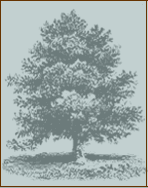" To
enhance undergraduate learning in the liberal arts by
promoting use of library special collections"

Participating
Institutions

|
Events > Oral
History Workshop
Creating and Using Oral History
in the Classroom
Yale University
October 22, 2005
Workshop Evaluation
Your replies to this brief questionnaire will help us to
assess the workshop's utility for you and to plan future
events.
1. How did you hear about the workshop?
- Suzy Taraba, Wesleyan
- Suzy Taraba,
Wesleyan
- Ann’s presentation
to Special Collections Committee
- First Teagle workshop
and e-mail list
- Through a colleague
- By invitation at
Quinnipiac
- Steering Committee
- E-mail
- Previous connection to Teagle grant
- Steering
Committee
- Friend at Wesleyan
2. How would you evaluate the day's sessions (please check
the appropriate categories):
|
|
Very
effective and useful |
Effective
and useful |
Less
effective and useful
|
Not
effective or useful
|
"Using
Oral History"
Bruce Stave
|
9
|
2
|
|
|
"What
You Need"
Andy
Horowitz
|
11
|
|
|
|
"Listening
and Learning"
Andy
Horowitz
|
9
|
2
|
|
|
"Archivist Perspective"
Richard
Szary
|
1
|
8
|
2
|
|
Additional comments are welcomed:
- I really have a hard time staying
awake through power point presentations, though the material
itself was
fine and the presenter was obvious and very thoughtful
- Bruce and Andy’s were superb. Right on the mark. The
student Emily was great. The analysis of excerpts seemed
less successful. Richard’s talk seemed a bit like it
was a repackaged general MS&A talk; not bad but
less oral history specific
- I wish it were longer!
- Simply superb! The workshop offered a wealth of practical
information I can use the classroom at present and in the
future.
3. Please tell us what particular needs you have that the
workshop fulfills (for example, courses you are teaching
or planning, projects you have):
- Oral history has a place in the
teaching and writing of fiction and non-fiction-both obtaining
oral histories
and reading collected histories.
- I am tentatively planning a course that combines the study
of composed memoir w/oral memoir.
- Possible oral histories regarding origins of Library -- Mr.
Lewis, the Walpole Factory; experiences of grad students
working there.
- I have been peripherally involved with
collecting oral history so hearing from experts in the
area was broadening. I also
plan to try to include an oral history option in
my writing course.
- I am teaching Front Porch: architectural and social significance.
I want to expand it to encompass oral history--transmission
of values through orality and performance.
- Initiating student and faculty oral histories
-
I hope to use this information in U.S. history survey courses.
I am teaching but it’s most significant use might be
in a course I am trying to develop about the history of Fairfield
County, which I now would like to model on some of the work
of the New Haven Oral History Project.
- The workshop fulfills a personal interest and nurturing the
idea of using the context of this workshop in the classroom.
- Courses planning, development of oral history project
- Local oral history project needs to get under way
- Giving me a real idea about how to conduct an oral history
that I can use as part of a writing class.
4. What would you have liked to change about the workshop
(for example, scheduling, speakers, subject matter, location,
and anything else important to you):
- Archivist perspective of limited
use to my purpose. A bit too detailed yet certainly
useful-everything I needed
to know I learned in 10-20 minutes
- It started earlier than was ideal for people who had to drive
here from other towns. Given that it did start early I would
have appreciated coffee and nibble on arrival rather than
at break. And warmer room! But the gift certificates were
so nice and unexpected.
-
Warmer room! I understand from the members of the Special
Collections Committee that Saturday was a problem and not
all realized it wasn’t a ‘by invitation’ event.
- Fridays work better for me.
- More student experiences, more sound clips, maybe a small
group activity for energy, interest, feedback.
- Excellent arrangements.
- I thought the workshop was close to perfect although I would
have preferred an earlier start and shorter breaks in order
to add program or to end earlier.
-
Nothing. It was all interesting and enjoyable. I appreciate
the packet of information and the contact sheet. I appreciated
hearing from Emily and receiving a student’s perspective.
Thank you for breakfast and lunch!
- Nothing.
- Overall, very good
- Maybe start at 10:00AM
5. The Teagle Foundation seeks to enhance liberal arts education.
This Teagle grant is specifically aimed at "Enhancing
undergraduate liberal arts learning through the use of
library special collections." What other workshop
topics would help you to accomplish this goal on your campus?
- Archival Art in the teaching
of history, literature fiction, languages.
-
Team teaching especially across disciplines—models/exemplary
programs.
-
I’d like to see some focus on teaching from early primary
sources but that may not meet the needs of the larger group.
- Perhaps another workshop similar to the first, showcasing
specific examples of student projects done in this area.
-
Is there a tour that includes a “hands on” component
to interest teenagers? High schoolers? Make this Yale experience
part of their reality?
- Scholarly use of oral histories by faculty and students
- May I think about this?
-
I’m open. Keep the e-mails coming for future seminars.
Interesting points
- 3 people heard about this workshop
through Wesleyan (2 from Suzy).
- All 11 thought Andy’s first talk
was very useful and effective.
- 9 thought Andy’s talk involving
a student’s
perspective was superb;
- 2 specifically mentioned Emily
- 2 people
requested a warmer room.
|